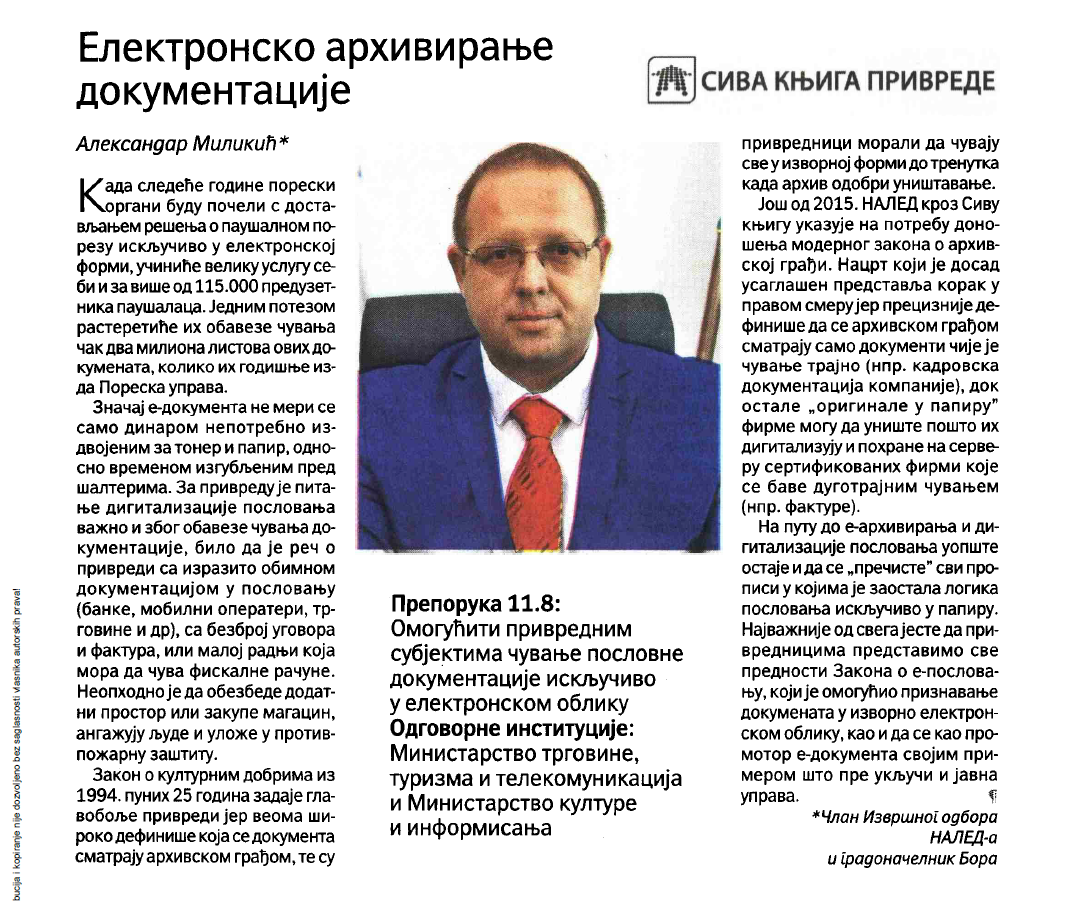Electronic archiving of documentation
When tax authorities start delivering decisions on lump-sum tax exclusively in electronic form, starting from next year, they will do a huge favor to more than 115,000 lump-sum tax entrepreneurs. In a single move, they will eliminate the obligation of storing up to 2 million pages used for these documents, annually issued by the Tax Administration. The same benefit was felt by all of those that received electronic decisions regarding various construction-related permits - 200,000 documents over the past three years.
The significance of e-document for businesses is not only measured in unnecessary funding allocated for toners and paper. For businesses, the matter of digitalization is also important because of the obligation of storing documentation, whether their work is highly frequent (banks, mobile operators, retail etc.) with numerous agreements and invoices, or a small business that needs to store fiscal receipts. For this purpose, they need to assign an adequate room or rent storage space, hire additional staff and make investments to comply with fire protection standards.
The Law on Cultural Goods from 1994 has been causing headaches to businesses for the past 25 years, as it defines quite broadly the documents considered archive material, so businesses had to store nearly everything, up to the moment when the archive approves that they can be destroyed.
Ever since 2015, NALED has been indicating the need for adoption of a modern Law on Archive Material within its Grey Book. The draft that has been aligned represents a step in the right direction, as it defines more specifically that the term archive material should refer only to documents that need to be stored permanently (e.g. a company's staff documentation), while the rest of the materials can be digitalized and stored on company server (e.g. invoices).
On the path to e-archiving, one of the steps is to review the list of documents that need to be stored permanently, and to „clean up“ the regulations still requiring that documents should be made in paper. The most important thing is to inform businesses about all benefits of the Law on E-Business which enabled the option of creating documents in originally electronic form, and to have the public administration positioned as a promoter of e-documents, by serving as a bright example.

This website uses cookies to ensure the best user experience. By continuing to browse the site, you consent to the use of cookies.
CONTINUE LEARN MORE